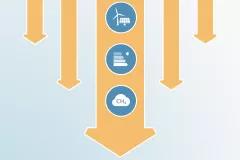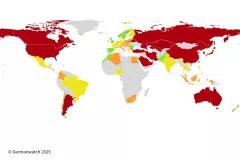Assessing the concept's cultural legitimacy among stakeholders in the solar energy sector
While energy-sector emissions remain the biggest source of climate change, many least-developed countries still invest in fossil-fuel development paths. These countries generally have high levels of fossil-fuel technology lock-in and low capacities to change, making the shift to sustainable energy difficult. Tanzania, a telling example, is projected to triple fossil-fuel power production in the next decade.
This article assesses the potential to use internationally supported Nationally Appropriate Mitigation Actions (NAMAs) to develop solar energy in Tanzania and contribute to transformational change of the electricity supply system. By assessing the cultural legitimacy of NAMAs among key stakeholders in the solar energy sector, we analyse the conditions for successful uptake of the concept in (1) national political thought and institutional frameworks and (2) the solar energy niche. Interview data are analysed from a multi-level perspective on transition, focusing on its cultural dimension. Several framings undermining legitimacy are articulated, such as attaching low-actor credibility to responsible agencies and the concept’s poor fit with political priorities. Actors that discern opportunities for NAMAs could, however, draw on a framing of high commensurability between experienced social needs and opportunities to use NAMAs to address them through climate compatible development. This legitimises NAMAs and could challenge opposing framings.
To cite this article: Latif Amars, Mathias Fridahl, Markus Hagemann, Frauke Röser & Björn-Ola Linnér (2016): The transformational potential of Nationally Appropriate Mitigation Actions in Tanzania: assessing the concept’s cultural legitimacy among stakeholders in the solar energy sector, Local Environment, DOI: 10.1080/13549839.2016.1161607
Link to this article: http://dx.doi.org/10.1080/13549839.2016.1161607






